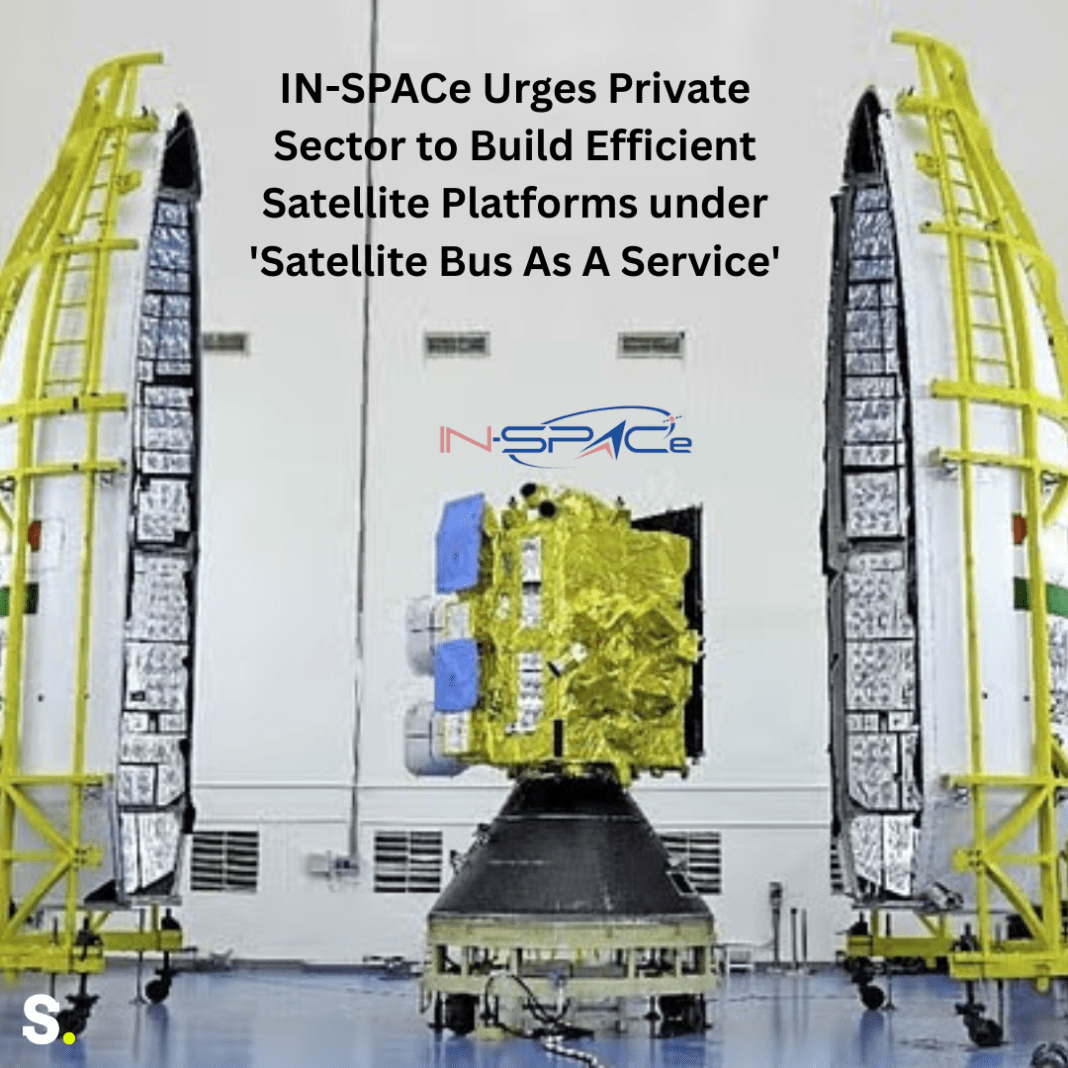The Indian National Space Promotion and Authorization Centre (IN-SPACe) has launched an exciting new program called ‘Satellite Bus as a Service’ (SBaaS). This program invites private companies to design and build small satellite buses right here in India. The goal is to help the country rely less on imported satellite parts and promote local industries.
IN-SPACe Launches ‘Satellite Bus as a Service’ (SBaaS) to Boost Indian Space Industry
According to IN-SPACE, a satellite bus functions similarly to a satellite’s body. While the unique task (referred to as the “payload”) rides on it, it houses all the crucial components, including as engines, power sources, and communication systems. Using SBaaS, Indian companies will create these satellite buses for hosted payload applications. In simple terms, it means different users can share a satellite by attaching their different devices or experiments to a single spacecraft. This sharing system makes it cheaper and faster for many groups like startups, government agencies, universities, and big industries to send their projects into space.
According to IN-SPACe, hosted payload service is a smart solution because it saves money, reduces waiting time, and allows faster access to space. Instead of building a whole new satellite for every new experiment, different groups can simply use space on one satellite bus. This move will also help private companies in India grow and become strong players in the global market for satellite buses.
An formal Announcement of Opportunity (AO) has been issued by IN-SPACe. This AO invites Indian non-governmental entities (NGEs), which include private companies, startups, and even educational institutions, to take part in this big opportunity. The aim is to develop small satellite buses that are completely designed and made in India, supporting the country’s dream of becoming self-reliant in space technologies.
Space Gridlock? China Rushes to Build the World’s First Space Traffic Police
Two-Phase Plan to Develop Small Satellite Bus Platforms
In Phase I, IN-SPACe will carefully choose up to four private companies based on their technical skills. These companies must show that they can design and build modular, multi-mission satellite buses. A modular satellite bus means it can be easily adjusted or changed depending on the type of payload it carries. Multi-mission means it can serve many purposes, like communication, Earth observation, scientific experiments, and more.
Once the companies are selected, they will work on creating these smart satellite platforms. They must make sure the satellite buses are reliable, flexible, and capable of carrying different types of equipment at the same time.
In Phase II, IN-SPACe will support up to two hosted payload missions using these newly built satellite buses. These missions will be real-life tests to show that the platforms work well in space. It will allow different payload developers to launch their projects quickly, using the common satellite bus provided by these companies. It also helps to shorten the time needed to get from the ground to space, known as reducing the “time to orbit.”
Bold Move, Troubled Timing: Why Elon Musk’s India Visit Matters for Tesla, Starlink, SpaceX, and X
This two-step approach ensures that the best ideas and technologies are chosen first, and then those ideas are tested in real missions. It creates a strong system where Indian private companies can show their talent and help the country move forward in space exploration.
The Function of IN-SPACe in Strengthening India’s Private Space Industry
IN-SPACe was set up in June 2020 after the Indian government decided to allow private companies to join the space sector in a bigger way. Before this, most space activities were handled by government agencies. Now, with IN-SPACe as a single-window nodal agency, it has become much easier for private companies to get permissions, support, and opportunities to work in space technology.
Operating independently under the Department of Space (DOS), IN-SPACe promotes, authorizes, and supervises all kinds of space activities done by private firms. Whether it is building rockets, launching satellites, or creating ground stations, IN-SPACe helps private players navigate the complex world of space missions.
By launching the SBaaS initiative, IN-SPACe is making it even simpler for companies, including startups and small businesses, to take part in space missions. They no longer have to build an entire satellite from scratch. Instead, they can focus on their specific payloads and use the ready satellite bus platforms offered by other private companies.
This system is expected to create a busy and exciting environment where many different groups can collaborate, innovate, and build India’s space capabilities much faster. It also shows that India is moving towards a new era where both public and private players work together to unlock the vast opportunities offered by space.




